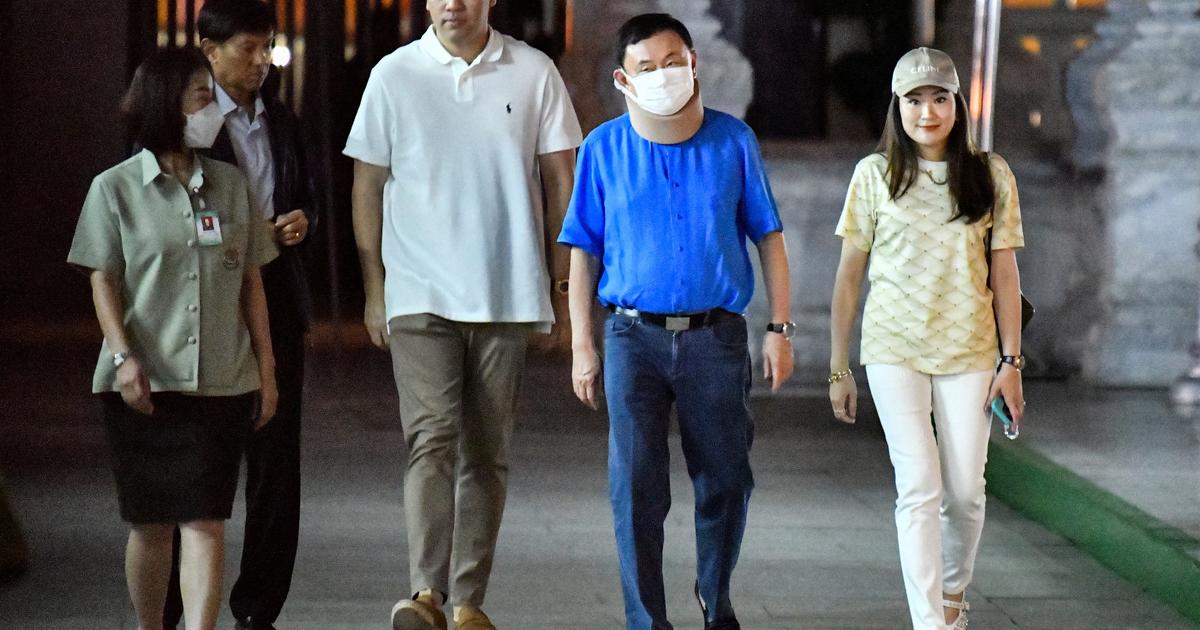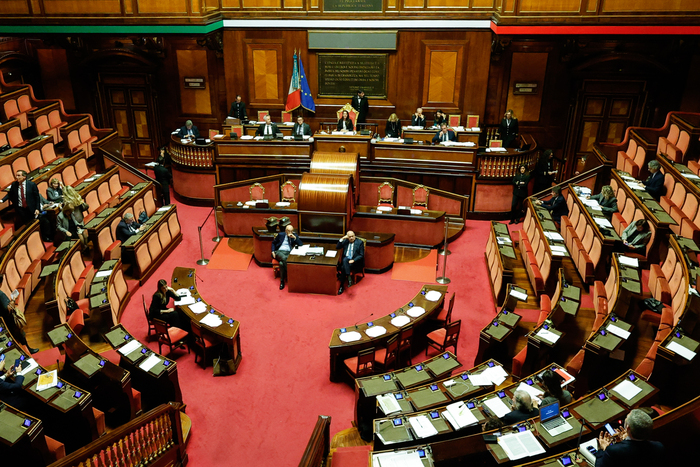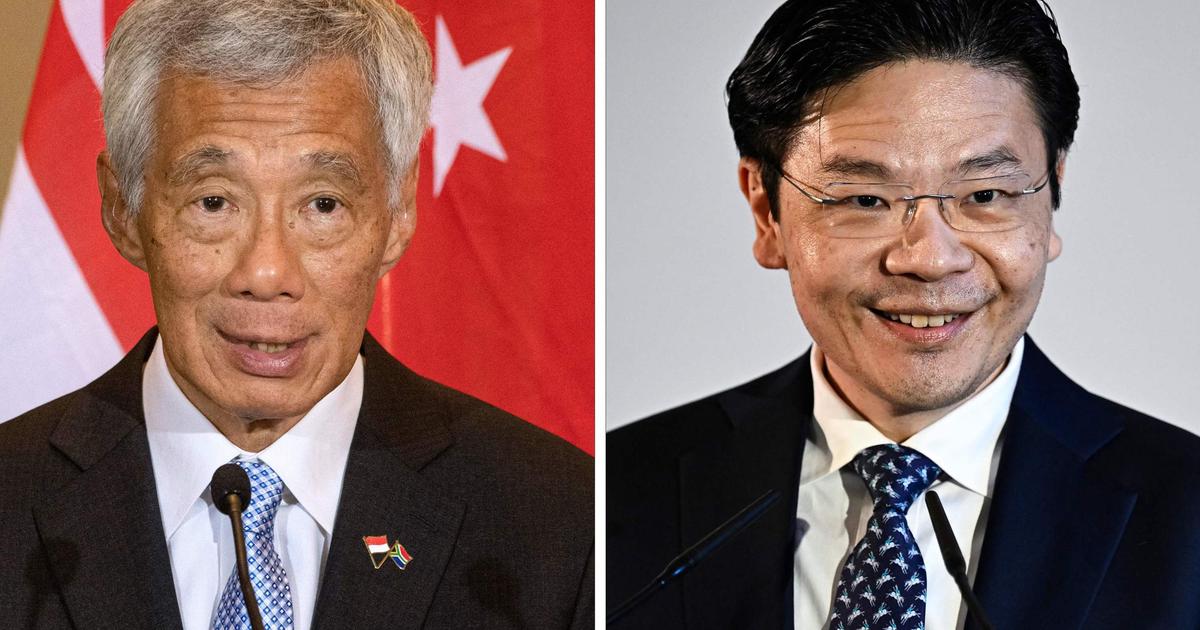The leader of the pro-democracy opposition in Thailand, Pita Limjaroenrat, assured on Monday, May 15, that he was "ready to become the next prime minister", the day after the general elections that propelled his party, Move Forward, into the lead. He claimed victory for his progressive movement, which is ahead of Pheu Thai, the other opposition force, with which he wants to form a coalition to come to power and succeed the pro-army government.
«
I am Pita Limjaroenrat, the next prime minister of Thailand," the 42-year-old reformist candidate told a news conference in Bangkok. "We are ready to form a government," he insisted, promising to be "a prime minister for everyone." He said he had spoken with Paetongtarn Shinawatra, his Pheu Thai counterpart, to form a six-party coalition that would gather "309" of the 500 seats in the lower house.
Orange wave
Thais have inflicted a stinging setback on the generals in power for almost 10 years, overwhelmed by the progressive party Move Forward, surprise of the legislative elections, in search of a coalition with the other opposition movements. Associated with the color orange, Move Forward is well on its way to becoming the main political force in the kingdom, in the wake of the massive protests of 2020, whose pro-democracy demands it takes up.
But his positions deemed radical, from the reform of the controversial article on the crime of lèse-majesté to the end of compulsory conscription, risk creating friction with the military-royalist elite that retains influence within the institutions. The rejection, by the younger generations, of the outgoing government resulting from the coup d'état of 2014, fueled a record turnout of 75.22%, a little above the 2019 election, confirmed Monday the electoral commission.
The smiling face of young Move Forward leader Pita Limjaroenrat (42) made headlines on Monday, contrasting with outgoing Prime Minister Prayut Chan-O-Cha's low face. Move Forward won more than 14 million votes, according to non-final results from the electoral commission, ahead of the other opposition force, Pheu Thai (10.8 million). In third place, Prayut's United Thai Nation (UTN) party is well behind, with 4.6 million votes.
Neck and neck
In terms of MPs, Move Forward and Pheu Thai are neck and neck according to the latest estimates (112 MPs each) out of the 400 constituencies at stake. The last 100 seats are distributed by proportional representation, which should give the Orange Party a lead. But complex electoral rules, concocted by the military to its advantage, force opposition parties to win a large majority, or form a coalition to come to power.
On Sunday evening, Pita Limjaroenrat assured that a government agreement with Pheu Thai was "on the table". The two parties share the observation of a failing Thai economy that needs reforms, but disagree on several social issues, such as the article repressing lèse-majesté, on which Pheu Thai is much more cautious. "Regardless, we will push for lèse-majesté reform," Pita insisted. Pheu Thai, the most popular party in the past two decades, did not get the "electoral tidal wave" that its star candidate Paetongtarn Shinawatra (36) demanded during the campaign. The daughter of exiled former Prime Minister Thaksin Shinawatra has not closed the door to a coalition: "We can work together," she said.
" READ ALSO The Thai opposition mobilizes to dislodge the military
Winner of 32 of the 33 seats at stake in Bangkok, a score of unexpected magnitude, Move Forward is part of the dynamics of the 2020 pro-democracy protests that shook the capital before declining in intensity under the effect of the pandemic and the repression of the authorities. Pheu Thai retains the support of rural areas in the north and northeast, which benefited from Thaksin's pioneering redistribution policies in the early 2000s.
Two member parties of the former government coalition, Bhumjaithai (68 seats in 400 constituencies), and Palang Pracharat (39), can also play an arbitrator role in the negotiations, which are expected to take weeks, before the appointment of the prime minister expected in the summer.
Counterbalancing the influence of the military
The opposition needs 376 seats out of the 500-seat National Assembly to counterbalance the influence of the military-appointed 250 senators. The pro-army camp of 126 MPs is enough to secure a majority in the vote of the Prime Minister, chosen by both chambers. This system, considered biased by human rights organizations, allowed former General Prayut (69) to stay in power in 2019, at the cost of a broad coalition encompassing fifteen parties.
The general's political future seems uncertain after this defeat. Its record remains tarnished by a sluggish recovery from the pandemic, which economists attribute in part to the flawed structure of a reform-stricken economy. Human rights groups accused him of carrying out a wide-ranging crackdown on leaders of pro-democracy protests, misusing the lese majeste law for political purposes.
In a country marked by the interventions of the army and the judiciary in the democratic process, observers fear a scenario that would limit the extent of the expected alternation, to the benefit of the military. Thailand has experienced a dozen coups since the end of absolute monarchy in 1932. The past 20 years have been marked by a succession of street protests, military putsches and party dissolutions in court.














